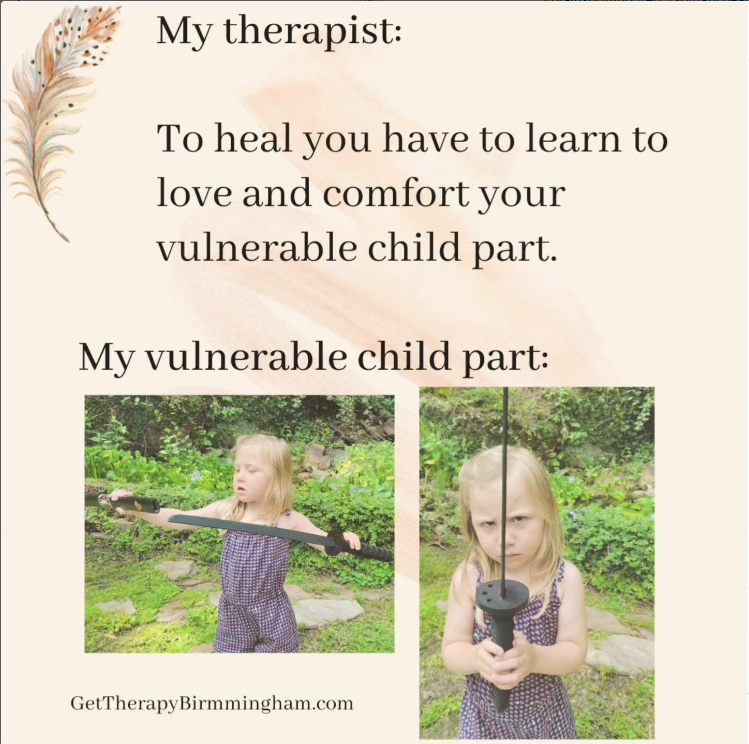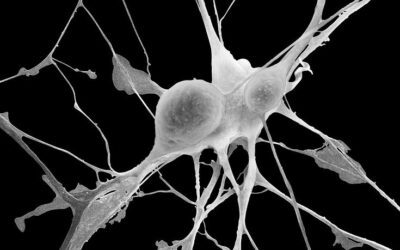For decades, many forms of therapy have approached neurodivergence—like Autism (ASD) or Attention-Deficit/Hyperactivity Disorder (ADHD)—as a "disorder" to be "fixed" or "managed." The goal was often to help the neurodivergent person adopt neurotypical behaviors in order to fit in.If you've been through this, you know how invalidating and exhausting it can be. You may have been taught to suppress your natural ways of being, a process now known as "masking," which leads to its own unique kind of trauma and...
Resources and Recommendations: Tools for Personal Growth, Healing, and Professional Development

Finding the right resources can be essential for personal growth, healing, and professional development, whether you’re exploring depth psychology, trauma recovery, or therapeutic practices. This section offers curated recommendations for books, articles, online courses, therapy directories, and professional organizations. Whether you are a mental health professional, a student, or someone on a healing journey, these resources can provide guidance, knowledge, and support in navigating your path.
1. Top Books on Depth Psychology and Trauma Recovery
This section features a list of essential books for those interested in depth psychology, trauma treatment, and neuroscience. We provide reviews and recommendations for foundational texts such as Carl Jung’s “The Archetypes and the Collective Unconscious,” Peter Levine’s “Waking the Tiger: Healing Trauma,” and Bessel van der Kolk’s “The Body Keeps the Score.” Whether you’re a student, therapist, or someone seeking personal healing, these books offer valuable insights.
2. Recommended Online Courses and Certification Programs
Online education is a powerful tool for personal and professional development. In this section, we highlight top online courses and certification programs in trauma therapy, depth psychology, neuroscience, and related fields. From platforms like Coursera, edX, and The Jung Platform, these courses can help individuals deepen their understanding and improve their therapeutic skills.
3. Therapy Directories and Mental Health Resources
Finding the right therapist or support group can make a world of difference. This subsection offers recommendations for therapy directories such as Psychology Today, GoodTherapy, and Therapist Aid, as well as resources for trauma survivors, including organizations like RAINN, NAMI, and SAMHSA. These resources provide access to licensed therapists, trauma-informed care specialists, and peer support networks.
4. Professional Organizations for Therapists and Mental Health Professionals
For those in the mental health field, joining professional organizations can provide networking opportunities, access to the latest research, and continuing education resources. This section lists key organizations such as the American Psychological Association (APA), the National Association of Social Workers (NASW), and the International Society for Traumatic Stress Studies (ISTSS), offering membership details and the benefits they provide.
5. Podcasts and YouTube Channels for Mental Health and Personal Growth
Podcasts and YouTube channels offer an accessible way to learn and stay informed on topics related to psychology, mental health, and self-improvement. Here, we recommend popular podcasts like The Trauma Therapist Podcast, On Being with Krista Tippett, and YouTube channels such as Psych Hub and The School of Life, which provide valuable insights into emotional health, relationships, and existential exploration.
6. Free and Low-Cost Mental Health Resources
Mental health services can be expensive, but there are many free and low-cost resources available for individuals in need. This section offers recommendations for sliding-scale therapy services, free counseling hotlines, and community-based mental health clinics. Organizations such as Open Path Psychotherapy Collective and BetterHelp’s low-cost plans are featured.
7. Trauma Recovery Resources and Support Groups
For individuals recovering from trauma, having access to the right resources is critical. This subsection provides recommendations for trauma recovery books, online forums, and trauma-informed support groups. Resources include Trauma Recovery Institute, The Body Keeps the Score’s companion guides, and trauma support forums for survivors of abuse, PTSD, and complex trauma.
8. Meditation and Mindfulness Apps for Mental Health
Mindfulness and meditation are powerful tools for improving mental health and reducing stress. This section highlights top meditation and mindfulness apps such as Headspace, Calm, and Insight Timer, providing insights into how these apps can help manage anxiety, improve focus, and foster emotional well-being.
9. Continuing Education for Therapists and Mental Health Professionals
Continuing education is essential for therapists and mental health professionals to stay current on research and best practices. This subsection lists recommendations for continuing education platforms like CE4Less, PESI, and Zurinstitute, offering opportunities to earn CE credits in trauma therapy, mindfulness, and cognitive-behavioral techniques.
10. Journals and Publications for Psychology and Neuroscience
For professionals and researchers, staying updated on the latest findings in psychology and neuroscience is crucial. In this section, we recommend top academic journals and publications, such as The Journal of Trauma & Dissociation, The American Journal of Psychiatry, and Frontiers in Psychology. These resources provide access to cutting-edge research and peer-reviewed studies in the mental health field.
Counselor Near Me: Why the Best Match Isn’t About Reviews
Spirituality and The Transcendent Function in Psychotherapy, Therapeutic Approaches and Techniques for Therapists, Therapy and Crisis Intervention for College Students in Alabama, Therapy for Chronic Pain and Chronic Illness, Therapy Resources, Tips and Tools, Trauma Treatment in Alabama
You're sitting in your car after another sleepless night, phone in hand, typing "counselor near me" into Google for the fifth time this week. The results are overwhelming – dozens of smiling faces, all promising to help, most with 4.8 stars or higher. You click on the one with the most reviews, the one everyone says is "the best," and book an appointment. Six sessions later, you're wondering why you feel worse than when you started. Here's what no one tells you about finding a counselor: the highest-rated...
The Evolution of Addiction Recovery: How Jungian Psychology is Creating Deeper, More Sustainable Healingaft
Executive and Physician Burnout, Jungian Therapy and Depth Psychology, Psychology Topics and Articles, Recovering from Abuse, Therapeutic Approaches and Techniques for Therapists, Trauma Treatment in Alabama
In the landscape of addiction recovery, a quiet revolution is taking place. While traditional 12-step programs continue to serve as crucial foundations for early sobriety, a growing number of treatment professionals are recognizing that lasting recovery requires something deeper—a transformation at the soul level that goes far beyond behavior modification. Corey Gamberg, Executive Director of Rockland Recovery Treatment Centers in Massachusetts, represents this new wave of thinking. His approach integrates...
What is Gesstalt Therapy?
History of Psychotherapy, Therapeutic Approaches and Techniques for Therapists
The Rise, Fall and Rebirth of Gestalt Therapy: Fritz Perls' Legacy and Post-Jungian Integration Gestalt therapy, with its focus on the "here and now" of experience and its innovative, experiential techniques, has had a profound impact on the field of psychotherapy. Founded by the enigmatic psychiatrist Fritz Perls, Gestalt therapy flourished in the 1960s as part of the humanistic psychology movement. However, it later fell out of academic favor, only to reemerge in recent decades, integrated with post-Jungian...
New Frontiers in Brain-Based Therapies for Trauma
Evidence Based Practice and Research Psychology, Lifespan integration in Alabama, Recovering from Abuse, Therapeutic Approaches and Techniques for Therapists, Therapy and Crisis Intervention for College Students in Alabama, Trauma Treatment in Alabama, Trauma, Depth Psychology, and Social Work, Understanding Neurodivergence and Neurodiversity in Therapy
What are Newer Brain-Based Therapies for Trauma? In recent years, there has been a surge of interest and research into novel therapies that target the brain and nervous system to treat the effects of psychological trauma. These emerging approaches leverage new insights from neuroscience to heal trauma in ways that go beyond traditional talk therapy. By working with the brain and body, they aim to resolve trauma stored in the nervous system and transform painful memories. This article will explore several of the...
The Multifaceted Psychological Power of Color
Therapeutic Approaches and Techniques for Therapists, Trauma Treatment in Alabama
How Does Color Effect Brain Function? What is Color? Color is a ubiquitous and powerful psychological force, influencing human experience and behavior in myriad ways. This paper explores the multifaceted effects of color, focusing on four key areas: somatic memory, trauma and implicit memory, brain function as measured by QEEG, and the behavioral impact of bright colors in advertising and consumer psychology. Drawing on a wide range of studies, we examine how color can evoke physical sensations, trigger...
Harnessing the Power of Therapeutic Affirmations:
Free Resources for Therapists in Private Practice, Therapeutic Approaches and Techniques for Therapists, Therapy Resources, Tips and Tools
A Clinical Guide to Transformative Self-Talk Worksheet for Clinical Affirmations Therapeutic affirmations have emerged as a powerful tool in the clinical setting, offering a pathway to reshape negative thought patterns, build resilience, and promote emotional well-being. As mental health professionals, it is essential to understand the core principles and effective implementation strategies to harness the full potential of affirmations in our work with clients. Core Principles for Therapeutic Affirmations...
Synthesizing Post-Freudian and Post-Jungian Perspectives on Trauma and the Psyche
Jungian Therapy and Depth Psychology, Recovering from Abuse, Therapeutic Approaches and Techniques for Therapists
How do Jungians and Freudians Conceptualize Trauama Differently? The understanding of trauma and its impact on the human psyche has been a central concern for depth psychology since its inception. However, the two pioneering schools of thought in this field, Sigmund Freud's psychoanalysis and Carl Jung's analytical psychology, developed divergent frameworks for conceptualizing the nature and impact of traumatic experiences. Freud's model of the psyche emphasized the central role of instinctual drives,...
The Cult Psychology of The Satanic Panic
Cults and High Control Group Psychology, Psychology of Conspiracy Theories, Recovering from Abuse, Therapeutic Approaches and Techniques for Therapists
Understanding the Appeal of a Moral Panic What was the Satanic Panic The 1970s and 1980s saw a wave of moral hysteria known as the "Satanic Panic," characterized by widespread fear of alleged Satanic cult activity. Despite a lack of evidence, many Americans became convinced that a vast, underground network of Satanists was responsible for everything from child abuse to human sacrifice. This essay will examine the social and psychological factors that made people vulnerable to these conspiracy theories, including...









